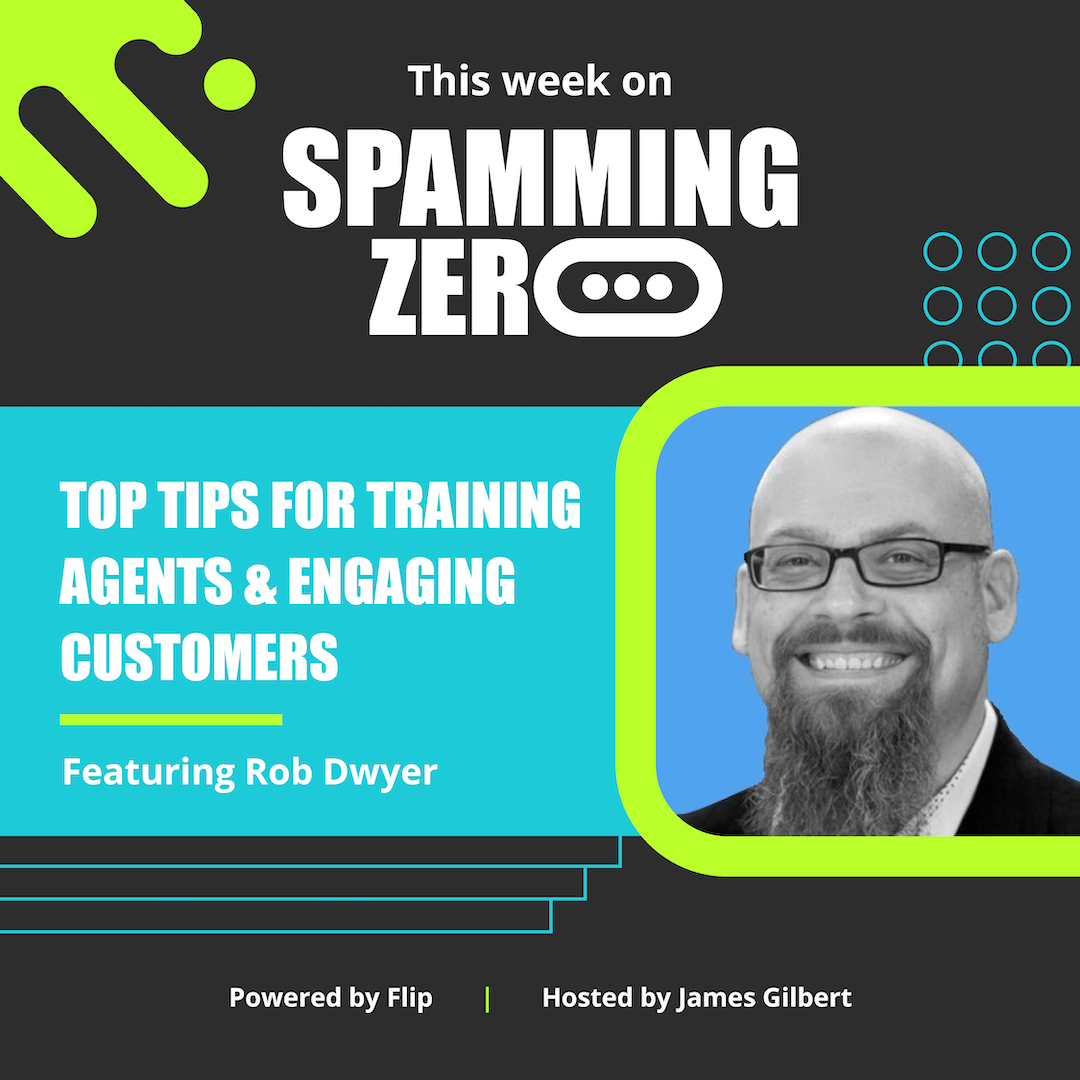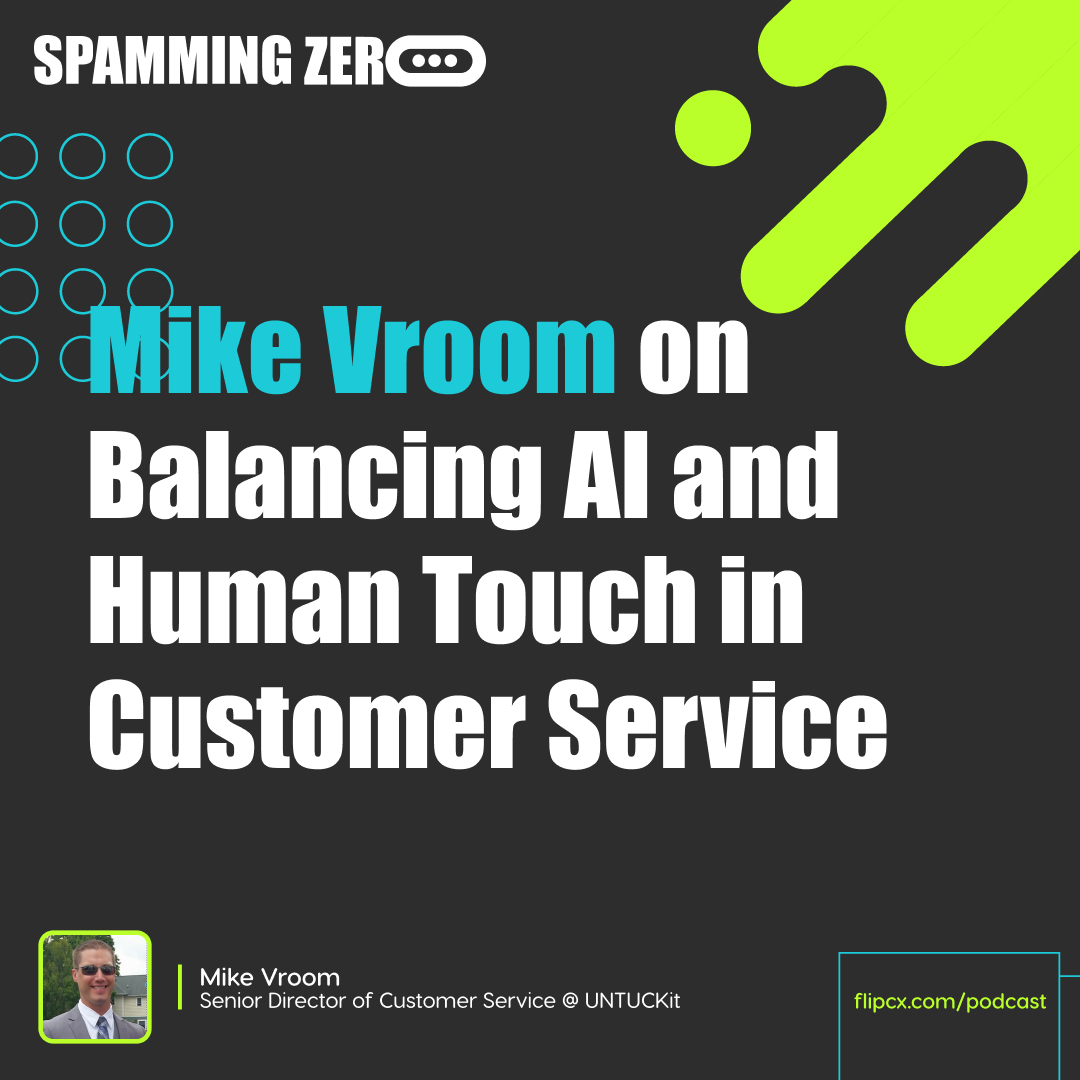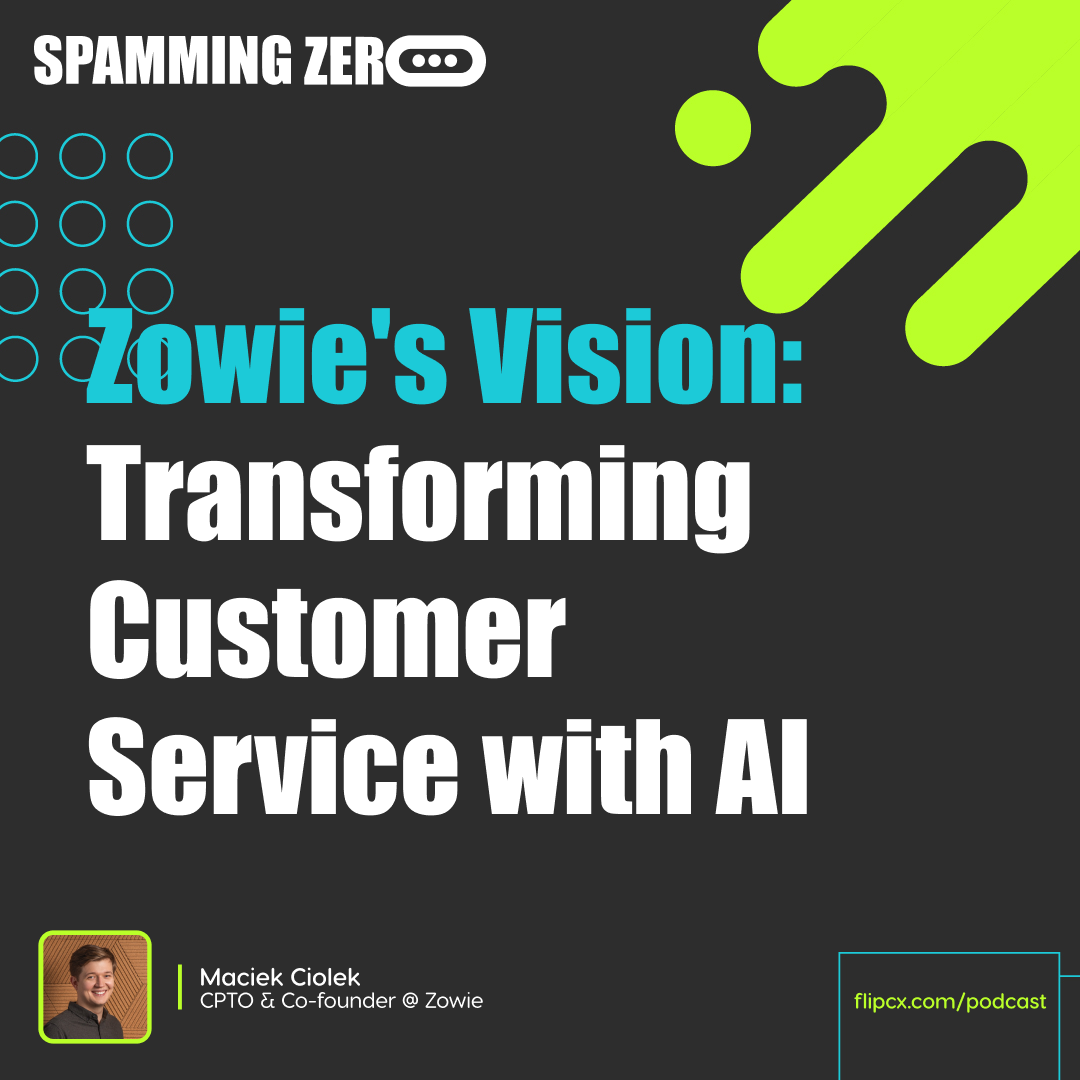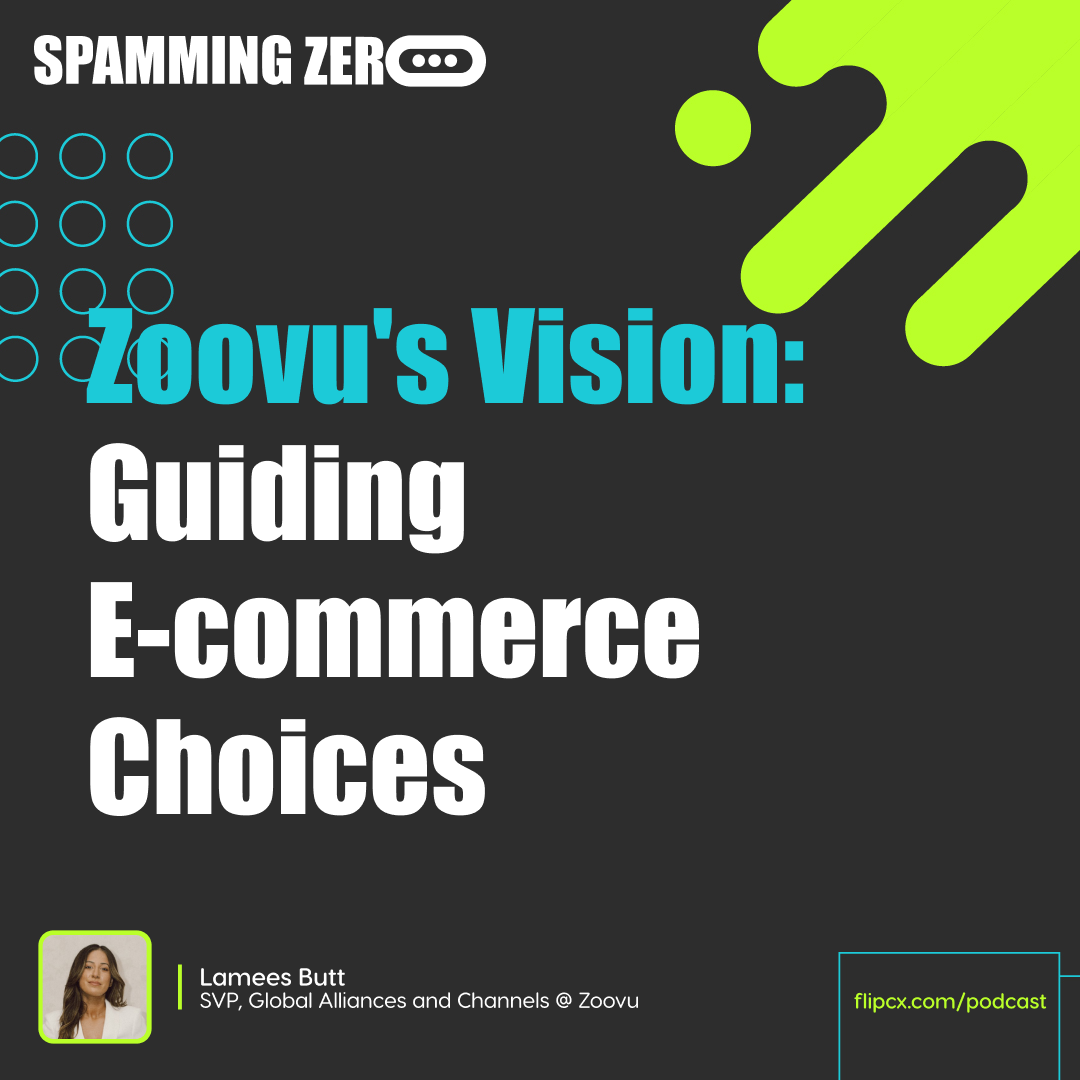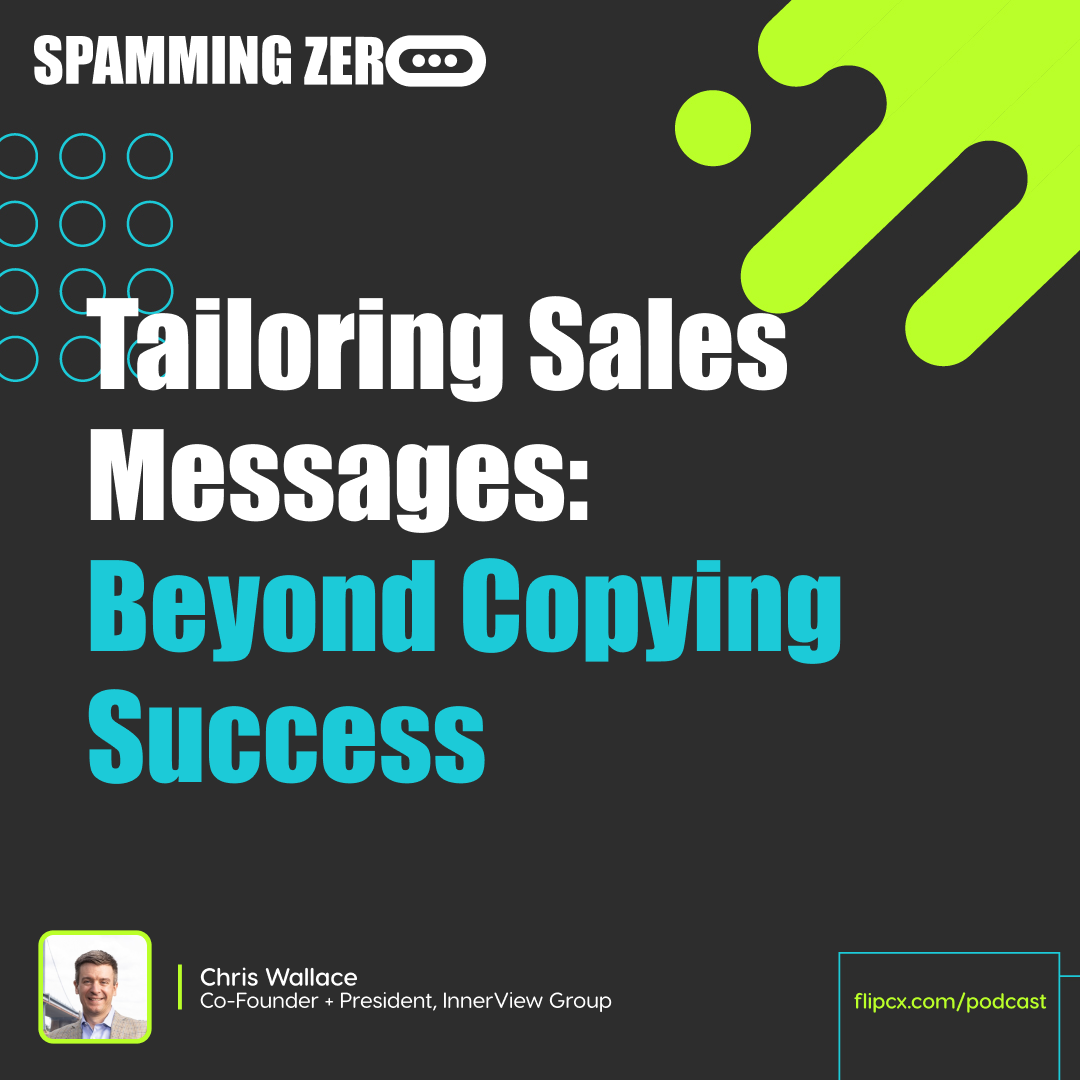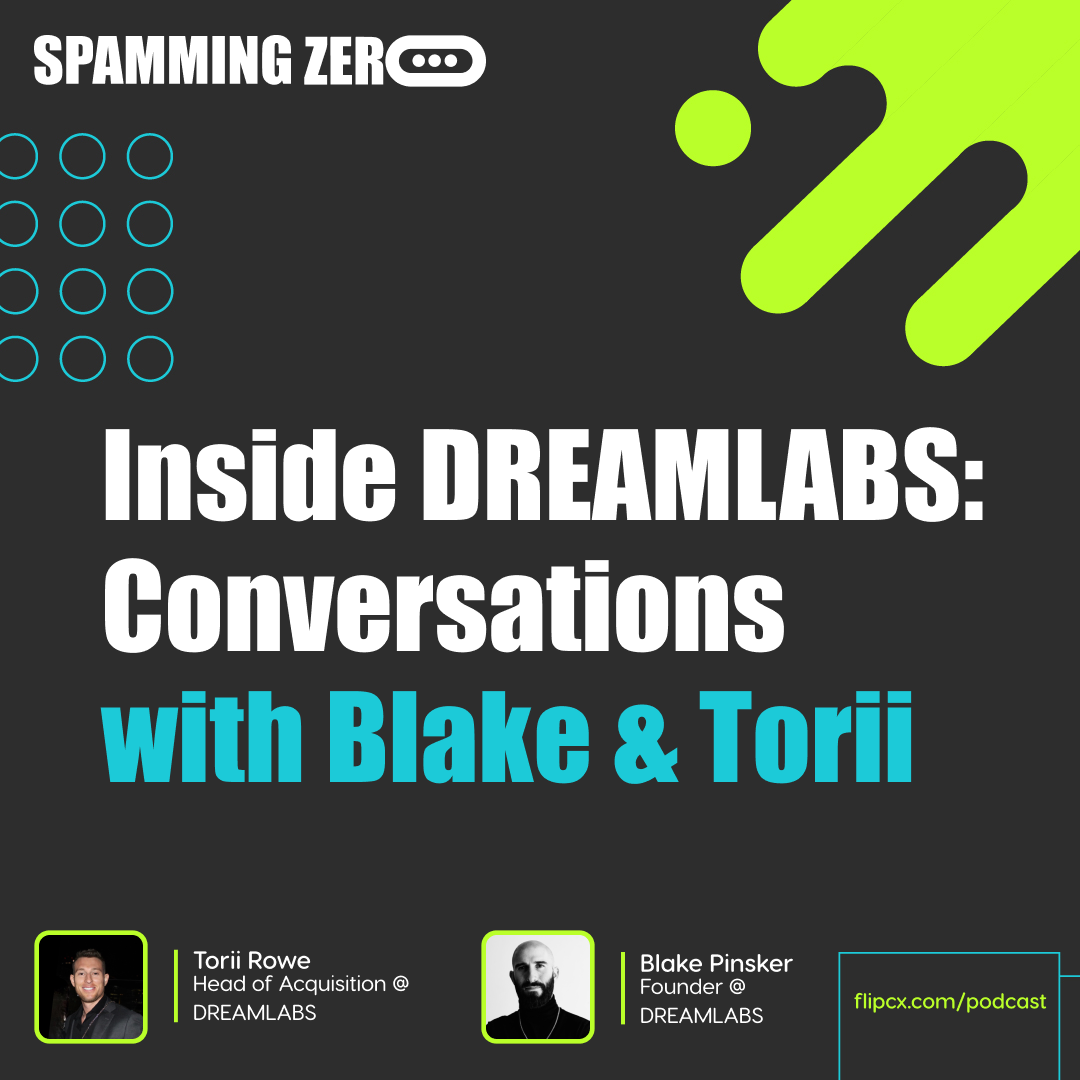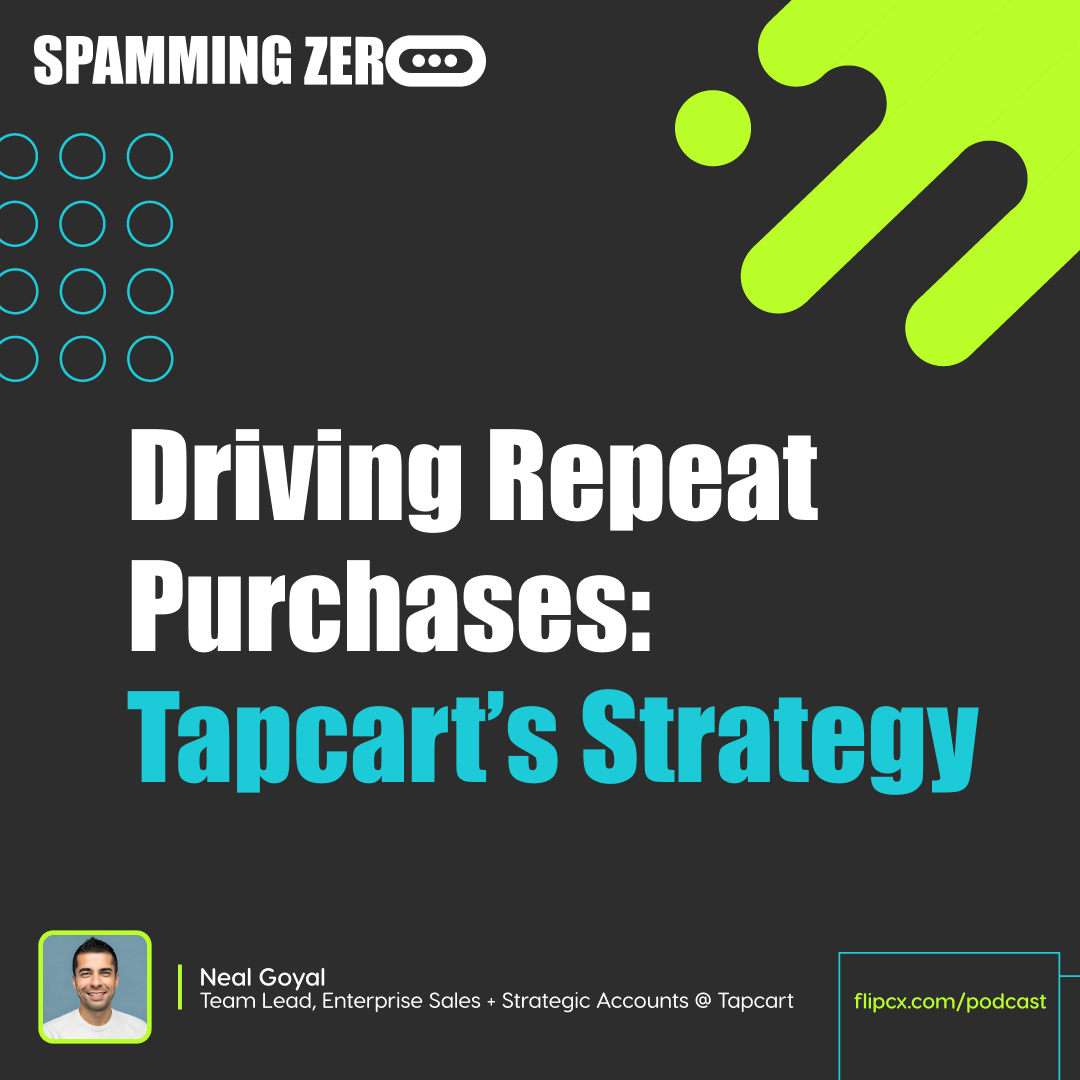Episode 46: Top Tips For Training Agents & Engaging Customers with Happitu's Rob Dwyer
- 0.5
- 1
- 1.25
- 1.5
- 1.75
- 2
James Gilbert: This month's sponsor of the podcast Spamming Zero is Kustomer with a K. K- U- S- T- O- M- E- R. com. Go check Kustomer Out today. They're amazing. They are your top- rated CRM for customer service. Finally, a CRM meant for customer service. They deliver fast, rich experiences to your customers with omnichannel messaging, a unified customer view, and AI- powered automations like their AI Chat, which comes with their products. Go check them out. They offer a free trial. They also have a slew of CX tools for customer experience professionals like yourself that you can use as well. And on top of that, they have brands like Glossier, Rappi, SKIMS, Ring, Hopper, and UNTUCKit all on their brand and using their products. They offer different types of solutions like self- service, artificial intelligence, of course, the CRM for customer service and just customer service in general. So they actually can provide help desk features as well. Go check them out. They're amazing, and they're specifically meant for you. That's Kustomer with a K. K- U- S- T- O- M- E- R. com. I'm James.
Brian: And I'm Brian.
James Gilbert: And this is spanning Zero. What's up, everybody? I'm your host, James Gilbert. Welcome to Spamming Zero once again, each and every week here. I am excited because we are joined by Rob. I should say his last name wrong, just to be funny, because we were talking about that. But his last name is Dwyer, not Dyer.
Rob Dwyer: That's right.
James Gilbert: And he has a fun little joke for us on his last name or actually your full name. What should your full name be?
Rob Dwyer: Well, I think I just need to change my handle in everything to Robed, as in I stole from you and then Wire, and then people will get it correct every time.
James Gilbert: Yeah, we were joking because I pronounced it correct the first time, and he's like, " You know, there's a lot of people that actually think the W is silent." And I don't know anything in the English language where the W is silent when it is the second letter, just so you know.
Rob Dwyer: I'm going to think about that. I'm going to let that work in the background, and we'll see if I inaudible come up with a silent W.
James Gilbert: So, Rob, you're also the host of another podcast called Next In Queue.
Rob Dwyer: Yeah, absolutely. I have been hosting that podcast for about a year and a half, and it has been so enlightening. I've talked with so many amazing people. People that I found interesting on LinkedIn and brought on to the show. And it's an amazing way to learn from other people who know a lot more about things that you don't know about, and maybe you want to know about, or just people who have wildly different experiences from your own.
James Gilbert: I completely agree. I always tell people. I think one of the strongest things you can do as an early leader is to start a podcast, even if all you did on the podcast was meet amazing people in the space that you're trying to sell to and learn from them. If that's the only value you got out of the podcast, it's worth every little bit that you put into it.
Rob Dwyer: Yeah, I absolutely agree. It's also a really good icebreaker to talk with people that maybe otherwise would be like, " Nah, I'm not interested. I don't want to talk to that guy."
James Gilbert: Yeah. And I reached out to you because I saw one of your episodes inaudible on a previous guest that we had on our show, Alex Mead, and he was on your show, and I looked at your background, and I saw your Star Wars stuff, and literally, the first thing I said to Rob was, " Rob, I don't care who you are. I don't care what background you have, but you have this stuff that I want to talk about because I'm a Star Wars nerd galore here." See, so I, for the longest time, collected when Star Wars was a thing when we were younger. I have those models but in the actual non- Lego version-
Rob Dwyer: The Kenner.
James Gilbert: ...of them. Yeah. The Kenner ones.
Rob Dwyer: Yeah.
James Gilbert: The ones that are actually worth a lot of money, nowadays, if you kept them packaged. Do you think I kept them packaged? Absolutely not. I played with those like hell.
Rob Dwyer: That's why they're worth a lot now is because the people that didn't treat them toys were few and far between. I mean, that's the same with my Transformers, my G. I. Joe, all of that stuff.
James Gilbert: Like Teenage Mutant Ninja Turtles.
Rob Dwyer: Yeah. I mean, if you had any idea that that stuff would actually be worth a ton of money in the future, you wouldn't have taken the lighter to it because it was a flamethrower on G. I. Joe. That what happens when you're playing?
James Gilbert: And I have kids now that are the age of like... Oh, I just find it so fascinating how my younger boys have no interest in playing with action figures, and it blows my mind. I don't even understand how you can live a childhood without playing with action figures. And I just don't understand it. It's how you would use your imagination. And I would take my action figures with me to trips to Lake Powell and everything, and if I couldn't find one of them, it was a genuine meltdown because you thought you were going to lose your action figure.
Rob Dwyer: Yeah. Well, I mean, here's the thing, right. I don't know exactly how old you are, but I think we're pretty close in age. But when we were growing up, the internet was not a thing, and it has fundamentally changed so much of our lives, but that includes how, think, kids discover the world. How they play. They've always got this thing in their pocket that they can access the world's greatest knowledge, but instead, they watch stupid videos. That's what we all do, like cat videos or whatever. We could be learning. We could be studying on our own, and instead, we watch stuff on TikTok and do sometimes stupid things because of that. So that's, I think, the difference.
James Gilbert: My 14- year- old daughter gets so upset with us because we will not allow her to have any social media platform whatsoever. She gets so mad. She's like, " Why can't I have Snapchat?" I was like, " Well because people are going to send you nudes."
Rob Dwyer: Yeah.
James Gilbert: That's why.
Rob Dwyer: Yeah, that is absolutely what's going to happen and she is better off without it inaudible-
James Gilbert: Yeah, I'm just like, " Come on now. This doesn't take rocket science. You know darn well why you're not able to have those things." Anyway, I digress. Let's talk about some of your background. You know, brought you on because you have a wealth of experience when it comes to customer experience and customer engagement. And the primary listeners of this podcast are direct- to- consumer people that are in a very similar role. So tell them a little bit about your background, how you got into the space in general.
Rob Dwyer: Yeah. Well, I got into the space because I was in the mortgage business in 2008, and I found myself exiting that business after a decade. And I moved to St. Louis with my wife, who had a contract gig. She's in the software world, and I needed just something, something that had insurance, and I ended up at a contact center large outsource provider. And I did not, by any stretch of the imagination, think that this was a great career move. That was not the plan, but inaudible-
James Gilbert: Well, why not though?
Rob Dwyer: Yeah, exactly. I think, in general, contact centers have not had the best reputation, and I certainly didn't go into it thinking this is a great job. What I did find, however, was that I had an opportunity within the contact center for upward mobility and opportunities to do things that I don't know exist in a ton of other different spaces. And so it was very quick that I moved into training, and I loved training. And then, I ended up doing leadership development for that company and I traveled all over the United States and even outside of the United States. So I got to see parts of the country and the world that I wouldn't have otherwise seen, which is really a pretty cool thing, and do it on the company dime. And then I ended up coming to a local family- owned contact center about seven years ago called Customer Direct. This is an outsource provider here in St. Louis. We now have agents in about six states that are 100% work from home. So we inaudible work from home in 2018, not because of COVID like a lot of other contact centers did, but really because we wanted to expand our footprint, and that allowed us to do some things from a... We're in the Midwest. Tornadoes roll through. When you're all in one facility, and a tornado's rolling through, you're going to shut all the phones down, and that's not good for your partners. And it also slows... You have to do things before you can all go to the basement or whatever, and that can be dangerous. So now we have agents all working from home spread out all over these different states, and so we've got some resiliency going on there. And then we have a software department, so it goes by Happy To. We have a couple of different products that we offer, and they were software products that we were using in our contact center that we had heard from our partners that they wanted to use them themselves because sometimes we're doing rollover or after- hours work for our partners, so they have their own contact center potentially and then we're also supplying some services. And so we rolled out these commercial products. So we've got one that's agent- facing to kind of help those agents be guided through the call. And then we have inaudible-
James Gilbert: It's like call scripting.
Rob Dwyer: Yeah.
James Gilbert: inaudible call scripting.
Rob Dwyer: You'd call it scripting workflow. It's called Happy to Guide. And then we have another product that we came out with, something that I honestly was looking for a long time. So I oversee training and quality in our contact center, and I'm looking for something to help us on the quality space. I started looking about four years ago for speech analytics products. And quite honestly, they weren't there four years ago. I mean, they were there, but they were bad. The technology just wasn't ready. And we came really close to adopting some of the vendors that are out there. But the cost was really difficult for us to handle, especially as an outsourcer because outsourcer, the margins are typically a lot lower. And our development team was like, " Hey, let's take a crack at this and see if we can do this." And we actually had a partner that it was a software- only partner. They weren't using our contact center, and we were able to solve some problems for them by recording their calls and doing the transcript. And we were like, " Hey, maybe this is a thing. Let's see if we can keep doing this and do it well." So yeah, today we've got Happy to Vision. So I sit on this side of, well, the contact center where I'm dealing with agents and how we improve agent performance and really focused on how we can serve our partners better, and I talk to new partners potentially to see if we're a good fit for them. But I'm also then dealing with the software side and dealing with other contact centers that are solving different problems. And so I see a lot of different pieces of the puzzle, insourced, outsourced technology, people, all of that. And I feel like that's a part that really allows me to kind of think about things in some ways that maybe some other people don't because they're typically one side or the other.
James Gilbert: Yeah. I mean, you have a wealth of knowledge when it comes to that. It's very different. And I'd love to unpack it just a little bit. So I'm going to ask you a couple of questions around it. Tell me a little bit about if you had to tell other people that were running a contact center when it comes to training. What's your one piece of advice that you would give people that maybe you need help there?
Rob Dwyer: Yeah. One piece of advice is difficult when it comes to training, but I think the dirty secret about training is that agents if you don't give them a chance to apply things right away and repetitively, they're going to forget it. And so you can spend all this time in training. When I started in a contact center as an agent, training was four weeks, four weeks before we ever hit the phones. That's a lot of time to spend learning systems, products, call flow, the whole thing. And it's not for a month until you actually take your first call. And when you take that first call, everything that went in over the last four weeks immediately goes right out. You forget everything. And so what I would tell people is you need training. You need the fundamentals. Absolutely. Don't skimp on it, but don't think that training is the solution to all of your problems because it's not. What agents need is that practice and the application of skills. And they need something where they can get to the knowledge they need for the things that don't come up all the time. Like if they haven't handled this situation in a month, they're probably not going to remember it if they either haven't done it before or they just don't do it very often. So they just need a way to find the information so that they can be confident and execute because training will not solve that. So that's my advice.
James Gilbert: Love it. So let's also... I want to talk a little bit about everyone that I talk to, whether they're in a customer experience role or not. There's not very many people that I talk to that are like, " Yeah, there is a... customer serviceing, in general, is just great." So tell me your hot take. What is, in your mind, the most broken part of customer service?
Rob Dwyer: Here's what I think. I think the problem is us as consumers, and I'm going to explain this a little bit.
James Gilbert: Taylor Swift coming at you.
Rob Dwyer: Yeah. We have four generations. We've wanted things faster and cheaper, and that applies to all kinds of things. And I'm as complicit in this as anyone else. Don't think that I'm calling everybody else out. You can use all kinds of retail examples, Walmart, Amazon. These companies are focused on delivering to you faster and cheaper, and cheaper is the keyword. And so, how do I do things cheaper? I've got to find places to cut my overhead, my costs, and one of those places is in the customer service side of things. Let me just not allow you to talk to customer service, or let me try to deflect as much as I can. And some deflection can be really good, and it can work really well. The problem is it often doesn't work really well, and we've just deflected because we don't want to pay more people to answer the phone. And then the people who are answering the phones are just overwhelmed because that's like there is no break in between. They're just over, over, over answering that phone and to customers that are upset because it's taken seven different layers to get to someone finally. And when they do get there, they're already hot. So what I would say is, is there an easy fix? No, they're all kinds of things that we can do to move things incrementally. But for you as a consumer, take a look at the choices that you're making about where you are buying things, who your service providers are. The bigger they are and the more cost savings they offer, just know that there's a trade- off with that.
James Gilbert: I love that. You dove a little bit into deflections, which actually sparked another question that I have for you. Give me your hot take right now on AI. Where does it fit in the picture?
Rob Dwyer: AI is this broad term, right. inaudible-
James Gilbert: It is.
Rob Dwyer: ...so much. It's super hot, right. Certainly, ChatGPT is the buzzword. Here's my overall thing with AI. AI can absolutely help us. It can help us in a lot of ways. It can automate some really repetitive things. It can help agents, human people doing their job. So if you're in the contact center, there are lots of different ways that AI can augment or provide support, whether that's surfacing information to supervisors so that they have better ideas about what's happening trend- wise with customers. What's happening agent- wise? How they can coach and develop. There are some real- time options out there that are surfacing things directly to agents in the middle of a contact. That's a really great use case for augmentation. I think some of the tools that are doing natural language processing, listening, and responding so that I don't talk to an agent, they're getting better. They really are. But they still sometimes have flaws, and some people are relying on really old technology that just doesn't work very well. And you just have to be smart about your strategy and what you're going to implement. You can go out and grab all the AI tools that you want. It's not going to fix all of your problems. But if you do it strategically. You really spend time evaluating what's out there. What fits in your budget? What aligns with your business goals? What really will make your customer experience a little bit better? It doesn't have to be a ton better, just a little bit better.
James Gilbert: It's the incrementals.
Rob Dwyer: And you pick those things and you implement them well, then AI can do some really great things, but it's not the end all be all.
James Gilbert: I couldn't agree more with you. And I'll tell you the one thing that really drives me up the wall lately is when people at organizations think that they can build these models themselves.
Rob Dwyer: It's hard.
James Gilbert: It's wild to me that people are trying to... You're hiring engineers, and you're hiring people that have to code all this stuff, and some options are literally right in front of you to fast- track that. And I think that that's a silly model because you're going to be spending way more money doing the homegrown build than you would typically with a vendor. And of course, I'm a little biased here at Flip because we obviously do voice AI, but it is a general premise right now, I think, in just the market in general with many people that we talk to is there's a great fear of AI, there's a great fear of automation. And as a CMO, I think that we're not talking plainly enough of what the fear is and the fear that I feel like I'm interpreting by through a lot of the conversations that I've had. It's not the fear of automation, and it's not the fear of even AI being there instead of a human. It's the fear of what we've all been dealing with forever. And that's that the experience has been so bad, and it hasn't gotten good enough to change our mind that it can actually have a positive impact rather than a negative. And I talk a lot about this internally here at Flip. And that's, truthfully, AI actually should amplify your brand, not create a negative experience. AI, in theory, should amplify your agents, as you put it, right. It inaudible be an amplification. And if you look at how even ChatGPT is being implemented today, everybody that I talk to, and I've even done my own little session for it on this. And the number one thing though I hear and see all over the place is, " Oh, well, ChatGPT is not very good. It doesn't give good responses." Of course, it doesn't. It's not a human. You have to give it the right type of prompts. As a human being, you have to think critically, and then you have to give it the critical thinking that you've given it so that it can actually amplify what you've done.
Rob Dwyer: Yeah.
James Gilbert: Right. And there are areas I think that brands can think about AI just in general when it comes to the contact center when it comes to just general customer service and empowering and making it better. And sure, some of those things are the more simple tasks, the WISMO calls, and the what's the cancellation policy. And, of course, human beings should not be the ones handling those things because those are the same thing every time. But I also think that there's a moment that you can have with somebody immediately when they call that's different. So let's say Rob calls me. He's ordered from Flip a million times. Don't you think that AI should be able, in theory, to analyze those millions of orders much faster than a human being looking through the help desk and looking through all the history? Yes. The answer is yes. There's no question about that. Now the next question is can they make it actionable? Can that AI then turn that moment into a positive brand experience? " Hey Rob, have you noticed the last five times that you've ordered, you've ordered this? Did you know we're coming out with a new product line? And you, because you're loyal, you get first dibs at it." Then it changes the conversation.
Rob Dwyer: Yeah.
James Gilbert: And I think we see this every single day with things that we don't translate as the customer service world, Alexa, Siri. The moments in our car where we're now not texting, but we're using voice to text our loved ones to keep us alive.
Rob Dwyer: Yeah.
James Gilbert: Right. We turn our lights on. We turn our ovens on. All this stuff is happening with voice. We now do voice orders through Amazon and through Alexa. So it is making its way into the world, I think, faster than it ever has before. But how it's consumed our lives, especially when it comes to voice, is over the last, I would say, decade has just grown exponentially. And I think what we're going to see over the next five years, especially in customer service, and especially if us at Flip have anything to say about it, we are going to change people's minds about that particular experience. Because what we want is we want people to crave getting on the phone again, and none of us do.
Rob Dwyer: Well, I will tell you, I just had an experience today. So let me just tell you about today. So I'm getting ready to move. I just bought a house. Very excited.
James Gilbert: Woop- woop.
Rob Dwyer: Yeah. I am moving back to the town that I grew up in, and it's been a... I haven't lived there since I got out of high school. My wife and I bought a house back there. And so today, I was changing addresses with all the credit cards, all the places that might deliver to me. Everywhere I can think where I've got my address saved, I'm changing. And one of those places that I will not name, I needed to change my address, and I'm trying to do it online, right. I'm trying to self- serve, and it fails. It doesn't tell me why it fails. The chatbot is worthless. Worthless. And so I call in, and it is a NextGen IVR that wants you to tell... First thing it does is say, " Oh, I know who you are," which is great. It recognizes the phone number. It knows who I am. Good start. " Do you want to make a payment? No, I don't. Okay." And then it says, " I'll give you all this information." And I'm like, " But I don't want this information. I just want to change my address." And it's not listening at this point. And it's telling me what my balance is and how much I can charge and blah, blah, blah, blah, blah. The agent will have the same information, and I'm like, " This isn't what I need." So one of the things that voice, I think, should always do is be listening for intent before it just starts throwing stuff at you because that's an experience that I did not like. And I'll be honest. I had to go through this three times because I have three separate accounts. Those of you that are familiar. It's my PayPal. It's my Google charge account and it's my Amazon charge account. They're all manned in the backend by this same company. But I got to do this three times because I can't do it online, and I have the same bad experience three times. It's awful. But it could have been so much better if it just would've said, " Hey, are you trying to make a payment? No." And then said, " Well, what can I help you with?"
James Gilbert: That's inaudible.
Rob Dwyer: So that I can say, "Hey, I need to change my address." And I can say, " Great. I can take care of that for you. Done."
James Gilbert: That's the key. See, that's what I mean. Your example is a perfect example because it's still so bad.
Rob Dwyer: Yeah. It is.
James Gilbert: It's still so bad. And it makes it fun for vendors like us because we know that this is such a massive problem, and what we can solve is right in front of us, you know.
Rob Dwyer: Mm-hmm.
James Gilbert: And some of it's actually pretty easy to do with products like ours. So we're excited about that. I want to shift gears for just a second, Rob.
Rob Dwyer: All right.
James Gilbert: One of the things...
Rob Dwyer: Let's do it.
James Gilbert: Of the things that engaged us to talk was that the Alex Mead post that you did.
Rob Dwyer: Mm-hmm. Yeah.
James Gilbert: And funny enough, I've not had the chance to actually listen to that episode. I read the post, and I saw your background.
Rob Dwyer: To be fair. It just came out today. So I forgive you for not having had a chance to inaudible.
James Gilbert: Okay. Thank you. That makes me feel a little bit better. As I was looking at your background in the Star Wars stuff, I was also looking at what you ask your guests on your podcast. If you're not familiar with this, Rob asks some very unique questions for his guests and Alex responded about U2. So I want to ask you the same question you ask your guests, because I bet you that it's pretty rare on your own show that you actually get to answer the question.
Rob Dwyer: Yeah. Okay. Ask away.
James Gilbert: So here we are. I want to ask you. If you were a rockstar, what rockstar would you be?
Rob Dwyer: If I was a rockstar? That is a... It's actually a really great question. I will tell you that I am definitely a big fan of music, lots of music. I am currently enthralled. My favorite podcast is a podcast called A History of Rock and Roll and 500 Songs. If you haven't heard of it, I encourage everyone to go check it out. It's amazeballs. It really is. Andrew Hickey out of the UK does this, and he's devoting 10 years of his life to it. It's amazing. But if I were a rockstar, I would want to be a singer. That was actually my dream. So two of my best friends growing up actually are professional musicians. We started a band. My best friend Travis plays bass, my other buddy Doc plays guitar. I was going to be the singer, and I was not good. We did one gig, and they had to get a friend of ours to break it to me that I was no longer in the band because it wasn't happening. My persona just a couple of years after that, you wouldn't know it by looking at me today, but I used to have friends who had introduced me to their friends as their buddy Kurt Cobain because I had the long blonde hair just kind of dirty, scruffy going on here. So I'm going to go with Kurt Cobain. Also, by the way, the only NFT that I own, I won on Twitter, and it's an NFT of a show that they did right before their first album, technically second album, before Nevermind broke really big. So yeah, I'm going to go with Kurt Cobain.
James Gilbert: Love it. All right. Now I want you to answer the same question, but I want you to give me recent music.
Rob Dwyer: Okay. How recent?
James Gilbert: I mean, let's say in the last five years.
Rob Dwyer: Okay.
James Gilbert: This is a harder one, usually, for people.
Rob Dwyer: The last five years. So putting out music within the last five years.
James Gilbert: Yeah.
Rob Dwyer: Mm- hmm.
James Gilbert: What's your go- to? What station are you listening to?
Rob Dwyer: Man, I listen to my YouTube music. It's all custom. Probably my favorite artist that is recent is Arlo McKinley. He's a... He's country. I would call him country, but I would call him Outlaw Country or something, not... because I'm not a huge hot country fan. That's not my thing. But Arlo McKinley actually saw him on his last tour. He came through St. Louis. It was really exciting to go see him. It was a nice small venue. It was very cool. And really just some of the most soulful music you will ever hear. So he's got a couple of recent albums out. Go check him out.
James Gilbert: Love it. All right. So we're getting pretty close to time, and I want to ask you just a couple more questions real fast.
Rob Dwyer: Shoot.
James Gilbert: So the next question I like to ask just about every guest that comes on, and that's, tell me about an experience that you've had with a brand that left you with some great memories. You just like, " I will never forget this experience."
Rob Dwyer: This has been a... It's long time. You can make all the fun of Olive Garden as an Italian joint as you want. And I live in St. Louis, which is big on Italian, but they've got a couple of things going for them. They're breadsticks and those Andes Mints that they give you after. So my wife and I, when my kids were still relatively young, we went out to Olive Garden for dinner. We had just this wonderful server. She was super nice. She remembered our names. She engaged in conversation with the kids, not in a fake way, but really just kind of engaged with them. And at the end of the meal, there's four of us. And by all rights, she should bring four Andes Mints to our table. We got at least eight. Now, I don't know what those per piece cost Olive Garden, but it certainly doesn't cost a lot. It's a small thing for Olive Garden, but she just threw in some extra at the end of the meal. And that was particularly memorable for my kids because they were really excited. It's not just one mint. You get two. That's a big deal when you're a kid. It's like double dessert. And I think those little extras that you can do that they just take a little bit of thought. But not a lot of money can make a really big impact on your customers and how they perceive you going forward.
James Gilbert: Yeah, I love it. The little things really make a difference. They really do. Rob, if you had to be put in a Star Wars movie what would be your Star War?
Rob Dwyer: inaudible.
James Gilbert: Would you pick good or evil? Would you be a Sith Lord...
Rob Dwyer: Okay.
James Gilbert: ...or a Jedi?
Rob Dwyer: So everyone, for some reason, associates me with the Jedi. I think it's the facial hair.
James Gilbert: Everyone can now be a little bit inaudible.
Rob Dwyer: Yeah, that's it.
James Gilbert: Yeah.
Rob Dwyer: Something like that. So I think I would definitely be on the light side. I'd have to go that way, even though some of my favorite characters are on the dark side. And if I had to pick a movie to be in, I think I would have to... Oh man, that's tough. The galaxy that they were in is a really tough place. Let's be real.
James Gilbert: It really is. When do you think about it, you're like, "Well, this is actually really messed up."
Rob Dwyer: Yeah. Yeah. There's a lot of really messed up stuff going in. So if I'm going in as a Jedi, there are a lot of really challenging places to be in. So I think I'm going to start at the beginning before everything goes to hell. I'm going to say, put me in episode one before things really, really go bad.
James Gilbert: Okay. So you're Qui- Gon's like...
Rob Dwyer: Sure.
James Gilbert: You're the apprentice of Qui- Gon.
Rob Dwyer: Yeah. And I'll probably get mowed down by one of my Clone Commanders or...
James Gilbert: Darth Maul's coming for you.
Rob Dwyer: Yeah. I mean, it's not going to be a pretty ending, that's for sure. Maybe I'll escape, probably not. I'm probably not the best Jedi.
James Gilbert: inaudible. You knew when I told you that we were going to have you on, and I talked about Star Wars, that we were going to be talking about Star Wars on this show, right.
Rob Dwyer: I had a... I didn't see that question coming, but yeah.
James Gilbert: You know I like to keep my guests on their toes a little bit.
Rob Dwyer: Yeah, I'm feeling it.
James Gilbert: All right. So let's end with this final question. Rob, as we, primary listeners of this podcast, are direct- to- consumer professionals that are working at a direct- to- consumer brand, and it's a very different environment than your B2B environment. What piece of advice would you give them as we end the show on how they can tackle better customer service moving forward?
Rob Dwyer: I mean, I think the most impactful thing that you can do is really understand where your customer's pain points are. And if you haven't listened to actual customer interactions in a hot minute, do that. Understand why people call... Why they get upset, or what are the things that are requiring them to call? If they're not calling just to order something from you, that's the best call. Call, please order. Let's sell you stuff. Every call outside of that is probably a call that you want to understand why this is happening. If they can't figure out why their package hasn't arrived, there's something you can do about that. If they don't understand why they were charged a certain amount because that didn't meet their expectations, there's probably something you can do about that. Just understand where these pain points are and then trying to identify what are the things that you can do to ease that or eliminate that pain. Those are the kinds of things that make customers come back. People think it's like the chewy experience. It's the wow experience. It's not. It's, " You weren't a pain in my ass, and so I'm okay with you, and I will come back again as long as I feel like your products were good and met my expectations."
James Gilbert: So you have a plethora of data that you typically are consuming all the time as a contact center agent and as somebody who runs contact centers, right. So what's your advice? As they gather these insights, how do they share that with a broader team so that they can make those strategic decisions at the leadership level?
Rob Dwyer: Yeah. I mean, certainly, if you don't have a tool that is gathering those insights, then you need one. And feel free to call me. I'll show you what we can do. But shameless plug there. But you just need to be able to, number one, show the trends, right. How many phone calls or emails or chats or whatever is this calling or maybe even tweets, whatever the case may be? And then how much time are we spending on this? What is the actual cost of this particular issue? And then what's the cost of fixing it? Because the cost of fixing it may be relatively small. And if you can all of a sudden eliminate all of these inquiries, then that's literally bottom- line savings. That's what you need to do, is to put it into dollars and cents to the people that are making decisions. And if you can do that and say, " This is going to either make us or save us X amount of dollars every month," people will respond to that.
James Gilbert: Love it. You basically just validated like our savings calculator. So thanks for doing that. Rob. Rob, you've been an absolute pleasure to have on the show today. Thank you for joining us.
Rob Dwyer: Yeah, appreciate it, James. Thanks for having me on. It was great.
James Gilbert: If you have not yet subscribed to the podcast, please do so. We're on YouTube. We're on IMDb. We're on any podcast platform that you can find. Go on your mobile device, go hit that star rating, subscribe every week. You're going to get an awesome guest like Rob or many others that we've had in the past, like Eddie, who's a CMO of Magnolia Bakery. We are going to have a whole lineup of guests coming up here that are going to be amazing people to talk to. And the hope is... I'm hoping Liquid Death is out there listening to this because I've been trying to get them on our show for a while now, and I hit them up all the time. So if you know somebody at Liquid Death, tell them that James is trying to get them on the show because we all want to hear from them. So there's my plug for Liquid Death. I'm going to get them on here. You watch. In the next four to five months, they're going to be on the show. We're going to have many others. Thank you again.
DESCRIPTION
What happens when you put two podcast hosts—both passionate about customer experience AND Star Wars—together? Frankly, a pretty fantastic conversation :)
Rob Dwyer, VP of Customer Engagement at Happitu and Host of the Next In Queue podcast, joins our own James Gilbert to talk top tips around training agents, engaging customers, and rocking your CX. This week, on Flip CX’s Spamming Zero.
What’s Covered?
- What Rob has learned while hosting the “Next In Queue” Podcast
- How his career journey led him to CX
- The “dirty secret” about training contact center agents
- The most broken part of customer service
- Rob’s hot take on AI
- Top tips for CS pros
- Contact Center to C-Suite: Getting buyin
- Rockstars, Failed Bands, Star Wars
- And more
Ready for more fantastic Spamming Zero conversations ahead? Listen, rate, and subscribe on YouTube, Casted, Apple Podcast, or Google podcasts.
Today's Host
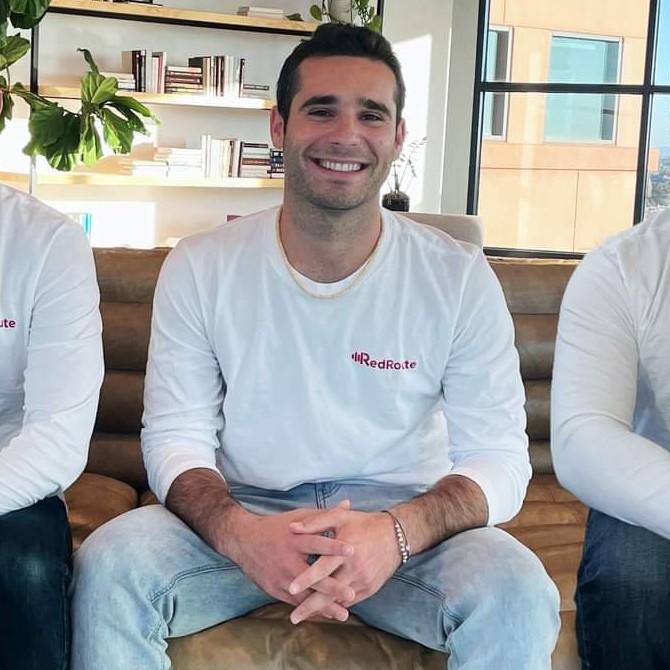
Brian Schiff
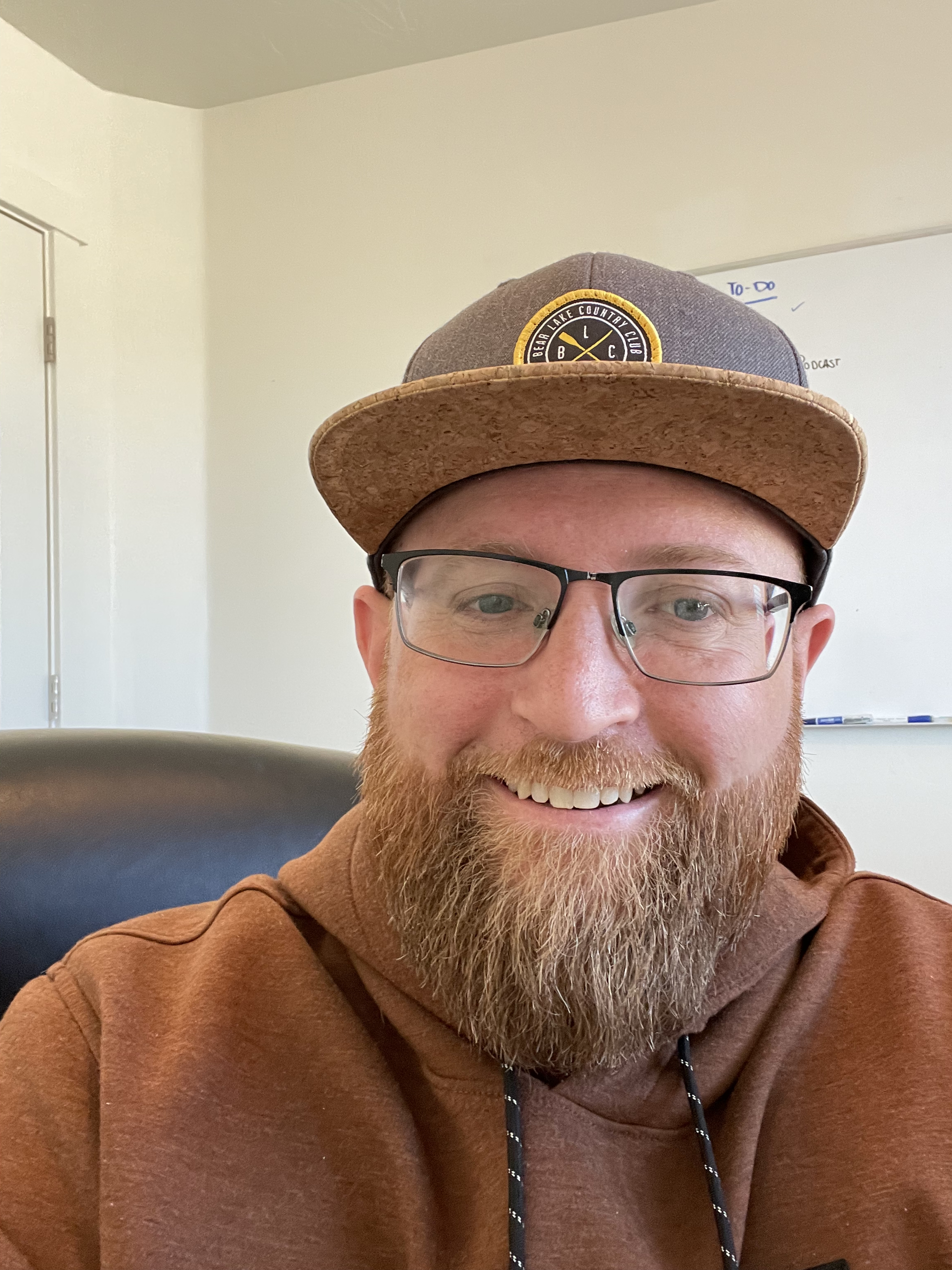
James Gilbert
Today's Guests


